Journey from Zanskar is a film of genre Documentary released in USA on 10 february 2010
Journey from Zanskar (2010)
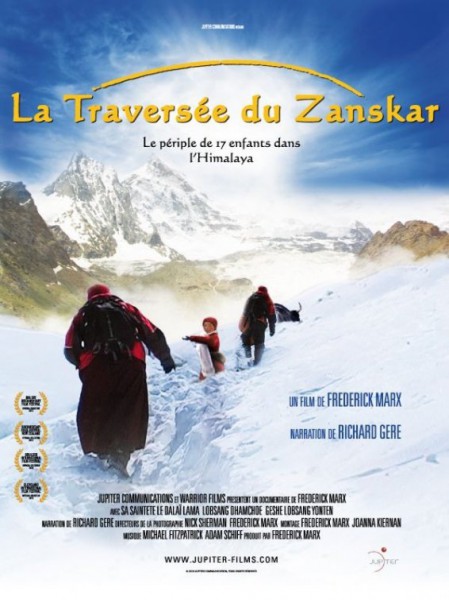
If you like this film, let us know!
- Infos
- Casting
- Technical infos
- Photos
- Videos
- Film quotes
- Characters
- Music
- Awards
Journey From Zanskar is a 2010 documentary film written, produced, and directed by Frederick Marx, for Warrior Films. It tells the emotional story of 17 small children who leave home and family, possibly forever, in order to save their dying Tibetan culture. Parting from one of the most remote and desolate places on Earth – Zanskar, in northwest India – the expedition must travel on foot over 17,000 foot Himalayan passes. The two monks serving as guides walked this same path 30 years ago when they were children. The 17 children with them may not return home for 10–15 years or more. Narrated by Richard Gere, featuring the Dalai Lama, the film tells the story of their incredible journey.
Synopsis
Zanskar is the last remaining original Tibetan Buddhist society with a continuous untainted lineage dating back thousands of years. In nearby Tibet and Ladakh, in Sikkim, Bhutan, and Nepal, traditional Tibetan Buddhist culture is either dead already or dying. The horror of Chinese government design in Tibet is being matched by the destruction of global economics elsewhere. Zanskar, ringed by high Himalayan mountains in northwest India, one of the most remote places on the planet, has been safe until now. But that’s changing.Comments
Leave comment :
Suggestions of similar film to Journey from Zanskar
There are 8962 with the same cinematographic genres, 4456 films with the same themes (including 1 films with the same 3 themes than Journey from Zanskar), to have finally 70 suggestions of similar films.If you liked Journey from Zanskar, you will probably like those similar films :
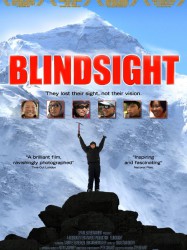
Blindsight (2006)
, 1h44Origin United-kingdom
Genres Documentary
Themes Films about children, Films about religion, Sports films, Films about Tibet, Documentary films about sports, Documentaire sur une personnalité, Documentary films about religion, Films about disabilities, Films about Buddhism
Rating71%





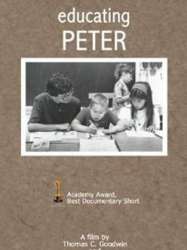
Educating Peter (1992)
, 30minutesOrigin USA
Genres Documentary
Themes Films about education, Films about children, Documentaire sur une personnalité, Films about disabilities
Rating72%





Peter Gwazdauskas, a special needs boy with Downs Syndrome, is going to a traditional school with regularly developing students. Originally, he was in a special needs school with autistic/special needs students. Peter was enrolled in a traditional school because federal law states that special needs students should be educated with regularly developing students in traditional schools. Peter's first half of the school year was not going well because he was doing behaviors such as making loud noises, rolling around on the floor, and being injurious towards other students in class. But when it was the middle of the year in January, things started to improve much better for Peter and he did just fine towards the end of the school year. Because of his improvements throughout the year, Peter received an award for being an exceptional student on the last day of school along with his other classmates.
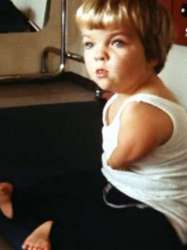
Handicapped Future (1971)
, 43minutesDirected by Werner Herzog
Origin German
Genres Documentary
Themes Films about children, Medical-themed films, Documentaire sur une personnalité, Films about disabilities
Actors Werner Herzog
Rating69%






Lost in the Crowd (2010)
, 1h12Origin USA
Genres Documentary
Themes Films about children, Films about sexuality, LGBT-related films, Transgender in film, Documentaire sur l'homosexualité, Documentaire sur une personnalité, LGBT-related films, LGBT-related film
Rating63%






Marion's Triumph (2003)
, 50minutesGenres Documentary
Themes Films about children, Films about racism, Films about religion, Documentary films about racism, Documentary films about law, Documentary films about war, Documentary films about historical events, Documentaire sur une personnalité, Documentary films about religion, Political films, Films about Jews and Judaism, Documentary films about World War II
Actors Debra Messing
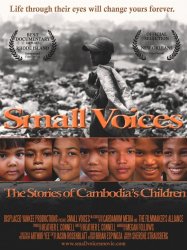 , 1h23
, 1h23Directed by Heather E. Connell
Origin USA
Genres Documentary
Themes Films about children, Documentaire sur une personnalité
Actors Megan Follows
Rating71%





Thirty years ago, the Khmer Rouge perpetrated genocide upon their own people. Attempting to create a classless society, they killed nearly 1.7 million people, primarily the adult, educated and artistic population. Today, the children born to the uneducated, poverty-stricken survivors face a bleak future. With the farming lands in the countryside decimated and little opportunity in the cities, thousands of children are struggling to survive.

Smile Pinki (2008)
, 39minutesOrigin USA
Genres Documentary
Themes Films about children, Documentaire sur une personnalité, Documentary films about health care, Films about disabilities
Rating77%





Le documentaire raconte l'histoire d'une petite fille pauvre en Inde rurale, dont la vie est transformée lorsqu'elle est opérée d'une malformation à la lèvre supérieure.
 , 48minutes
, 48minutesOrigin United-kingdom
Genres Documentary
Themes Films set in Africa, Films about children, Documentaire sur une personnalité
Actors Robert Powell
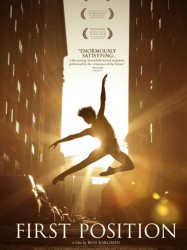
First Position (2011)
, 1h30Origin USA
Genres Drama, Comedy, Documentary
Themes Dance films, Films about children, Films about music and musicians, Documentary films about music and musicians, Documentaire sur une personnalité, Musical films
Rating74%






The Children of Leningradsky (2005)
, 34minutesGenres Documentary
Themes Films about children, Documentaire sur une personnalité
Rating77%





A text at the beginning of the film states that since the fall of the Soviet Union, between 1 and 4 million Russian children have become homeless and about 30,000 of them live around the Moscow railway stations. The film follows a group of children between the ages of eight and 14 during their daily lives at Leningradsky railway station. One boy, Misha, says his father didn't accept him as his son so he was brought to an orphanage at age two, Roma who is 12, stabbed his father twice in the stomach because his parents would get drunk and beat him and a 14-year-old girl, Yula, recalls how she was raped at age eleven but her mother accepted money instead of going to court and took to drugs, after which Yula left home. Sergiozha and his brothers seek shelter on the hot-water pipes in the sewers over the winter while others sleep in the trains or in the station. Most of the girls and some of the boys take to prostitution to make money for food, clothes and glue. All them are addicted to sniffing glue, they drink vodka during the day and sometimes sleep in rundown empty houses. A policeman beats a young boy and dumps a bottle of glue over his head and face. The children pick fights with homeless adults whom they despise and call bums. They tell that another child was raped and murdered and how the policemen beat them and held them for 48 hours although they had nothing to do with it. One of the last scenes shows the emotional funeral of a young girl, Tanya, that died from a glue overdose one day before her fourteenth birthday [1]. The film closes with 13-year-old Misha saying "God believes in people and helps them. He loves everyone, even bad people, not just Russians. He even loves Chechnyans. But most of all, He loves children.
 Connection
Connection